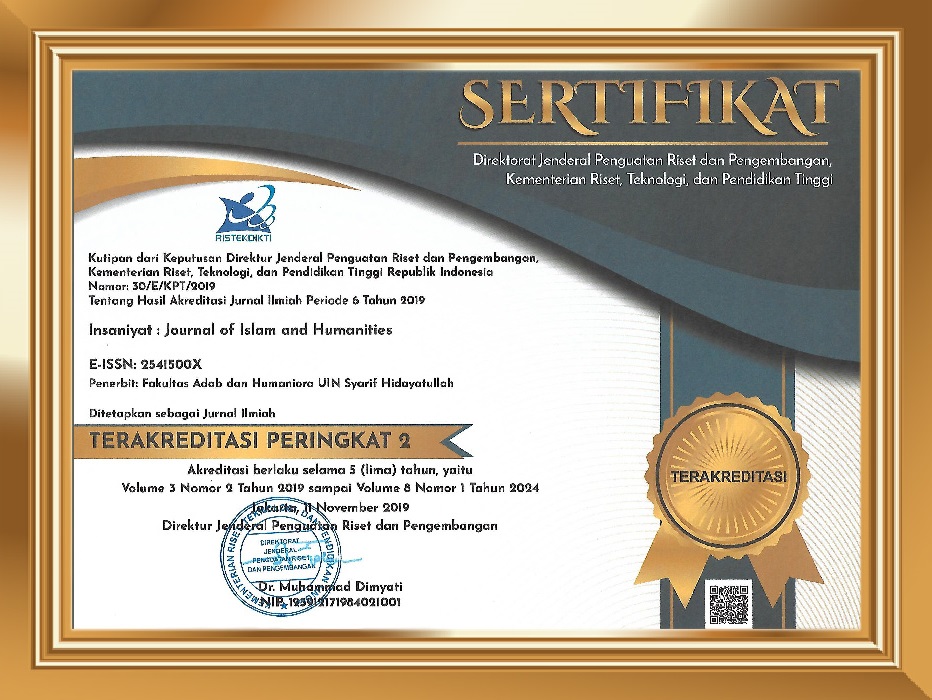Editorial Policies
Focus and Scope
Insaniyat : Journal of Islam and Humanities is a scholarly journal published by the Faculty of Adab and Humanities, Syarif Hidayatullah State Islamic University Jakarta, Indonesia. It is a medium for scholarly discussion concerning the media, culture, and humanities, including the newer information and communication technologies in the muslim societies, within cultural and historical contexts.
The journal is interdisciplinary, regularly engaging with a wider range of issues in humanities studies. Its focus is on substantive topics and on critique and innovation in theory and method. The journal is published twice a year (May and November).
Section Policies
Articles
 Open Submissions
Open Submissions Indexed
Indexed Peer Reviewed
Peer Reviewed
Peer Review Process
Articles submitted to Insaniyat : Journal of Islam and Humanities (ISSN Print : 2614-6010 E-ISSN : 2541-500X) will be evaluated through 2 stages of review, ie pre-review and substance review.
The pre-review of the article is carried out by the editorial team to review the conformity of the article with the focus and scope of the journal as well as the journal style and specific writing guidelines.
Substantial double-blind peer reviews. The review is performed by at least 2 reviewers. The duration of review is between two to three months.
The decision of whether the article can be published is authorized by the Editor in Chief by considering recommendations from reviewers. Articles that have been accepted and have been in-layout will be published in the In Progress issue before the regular issue is published on schedule, so they are index-able and cite-able immediately.
If you would like to become a reviewer for Insaniyat : Journal of Islam and Humanities , please contact us. You should provide some descriptive words of your reviewing interests. We will register you as a Reviewer and an Author into Insaniyat : Journal of Islam and Humanities within 3 working days. Your account information, i.e. username and password, will be delivered to your email.
Open Access Policy
Insaniyat : Journal of Islam and Humanities provides immediate open access to its content on the principle that making research freely available to the public supports a greater global exchange of knowledge.
Journal Accreditation
Insaniyat: Journal of Islam and Humanities remains accredited at SINTA 2 (Second Rank) from Volume 7 Number 1 (2022) to Volume 11 Number 2 (2026),
based on the Decree of Scientific Journal Accreditation Period I of 2025 Number 10/C/C3/DT.05.00/2025






